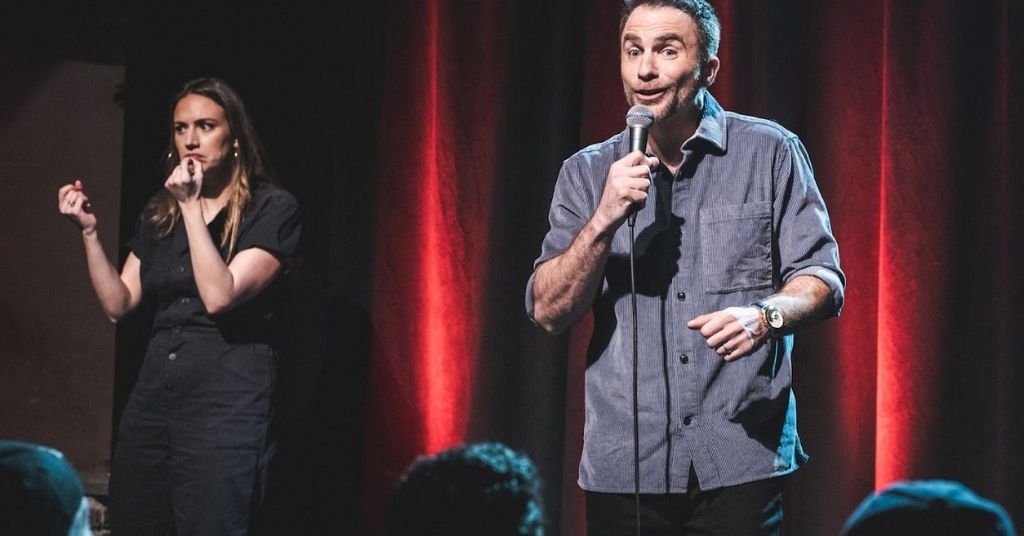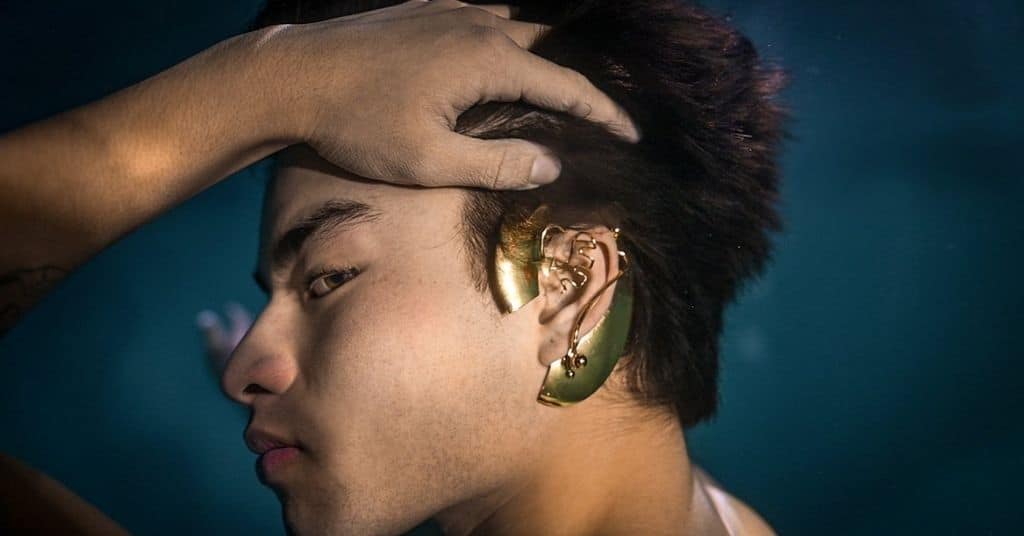
Why we chose cochlear implants for our deaf son
September 23, 2020
The Reality of Listening Fatigue in a World of Masks
September 25, 2020Deafinitely Theatre panelists discuss how can the arts do more for the Black Deaf community

Photo credit: @deafinitelytheatre Instagram
In light of the ongoing work of the Black Lives Matter movement, Deafinitely Theatre recently hosted a live panel discussion with four Black Deaf artists and professionals to discuss discrimination and equality in the performance arts.
The event aimed to shine a spotlight on issues within the Deaf arts community and offer ways forward to support the Black Deaf community.
Deafinitely Theatre is a professional theatre company. It is the first Deaf-launched and Deaf-led company of its kind in the UK. The productions are completely bilingual, in British Sign Language and spoken English. This allows audience members to enjoy quality theatre without needing an interpreter. They also run education and outreach activities, training programs for aspiring artists, Deaf awareness training workshops, and provide consultancy and training packages to facilitate more accessible productions.
The panel
Each panelist offered a wealth of insight from their lived experience. They discussed a huge number of topics including their experiences of racism and discrimination personally and professionally, outside of and within the Deaf community, the intersection of black and deaf identities, stereotyping, double barriers, and accessibility. There is also a Q&A with audience members.
The discussion was chaired by David Ellington, an award-winning profoundly Deaf actor, dancer, and film producer. He is the founder of VS1 Productions, which gives opportunities to rising Deaf talent, and is named as one of Bristol’s most inspiring Black and Minority Ethnic people in 2018. He is also an aerial artist and has been involved in Extraordinary Bodies Productions.
The panelists
The panelists were Jephta Asamoah, the founder of Black Deaf People UK, and an actor who has performed in Deafinitely Theatre and BBC productions. He moved from Ghana to London at the age of two and grew up in a deprived borough of London. He won the Student of the Year National Award, the first Black Deaf student to do so. Now he is studying Economics and Politics at the University of Leeds.
Semhar Beyene was born in London to Eritrean immigrant parents and has been involved in Deaf performing arts from a young age. She has taught dance workshops for international Deaf artists, festivals, TV, and music videos. Also, she has 13 years of experience in healthcare and technology. Currently, she designs creative communications for Deaf individuals, parents, and families. She is also a Digital Designer for an international think-tank.
Donna Mullings is an actress and dancer with an extensive list of performances in Deaf and Integrated Theatre and TV. She is a signer for programs on the Cartoon Network, ABC, ITV, MTV, Linc’s – Black America Comedy, Disney Channel, SCI-FI Channel, and Paramount and is well-known and loved for her role as a presenter in CBeebie’s Magic Hands which translates poetry into British Sign Language for children. She has toured as a dancer with the Def Motion Company.
What we can do to support the Black deaf arts community
During the discussion, they suggested some steps we can take to support Black deaf artists and create real and lasting change within the industry and society as a whole. The best place to start is by learning about their experiences!
The panelists presented examples of the barriers they face in the arts being both Deaf and Black. For instance, when an audition is called short-notice, this creates a situation where they do not have time to find the right interpreter. Not only do they need to secure payment (there is often a question over who should pay), they must also find someone who is trained in their field and can understand their background and culture. They may also need someone of the appropriate gender.
This leaves them with fewer options and more difficulty finding the right match who can be available at the right time. If they are called to an audition the day before, it is not possible to find an exact fit in time. As an artist, they make important decisions about how to portray the piece which gets lost with the wrong interpreter. That makes a huge difference between them getting the part or not. This can be addressed by setting up auditions in advance and notifying everyone as soon as possible.
They called for more Black people to be involved in theatre and especially in senior leadership. There are lots of talented Black people who are capable of this. However, in order for it to happen, they really need hearing theatre companies to get involved by supporting and encouraging Black performers to take these roles.
“They called for more Black people to be involved in theatre and especially in senior leadership.”
Another way to move forward is to create resources that explain white supremacy in sign language. That way the Deaf community has access to the same ideas and concepts as the hearing community does. Creating visual resources that demonstrate the way white supremacy works, and interpreting important discussions around race, helps the Deaf community to tackle racism. The burden to create these resources often falls to the Black community who are already exhausted. If you have the skills to help, get involved!
You can view the discussion here. It is in British Sign Language and interpreted in English. Subtitles are available.
Find out more about Deafinitely Theatre and watch examples of works here.
Read more: Deaf dancer Chris Fonseca encourages others to ‘Dream it, Believe it, Achieve it.’



